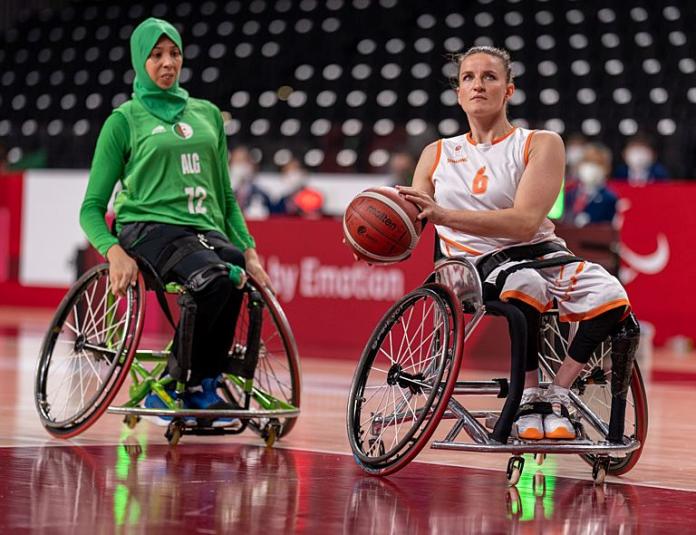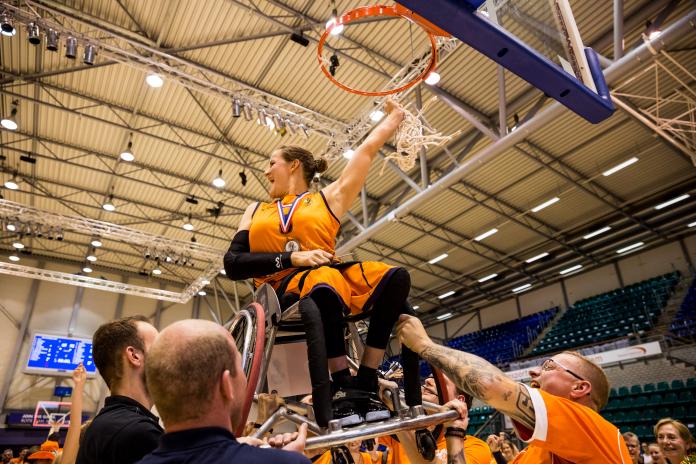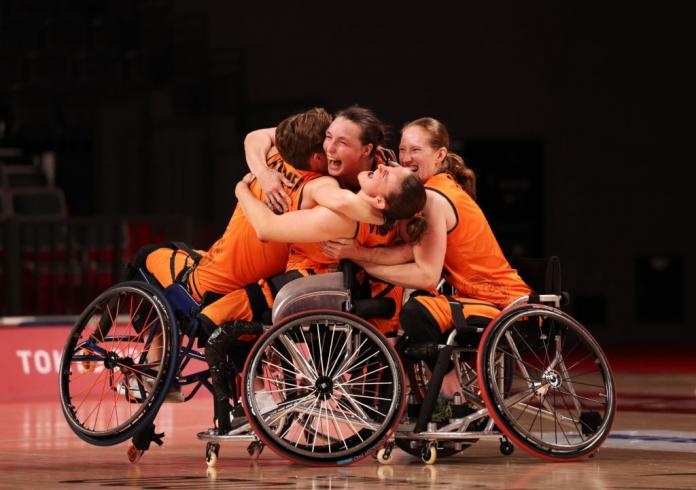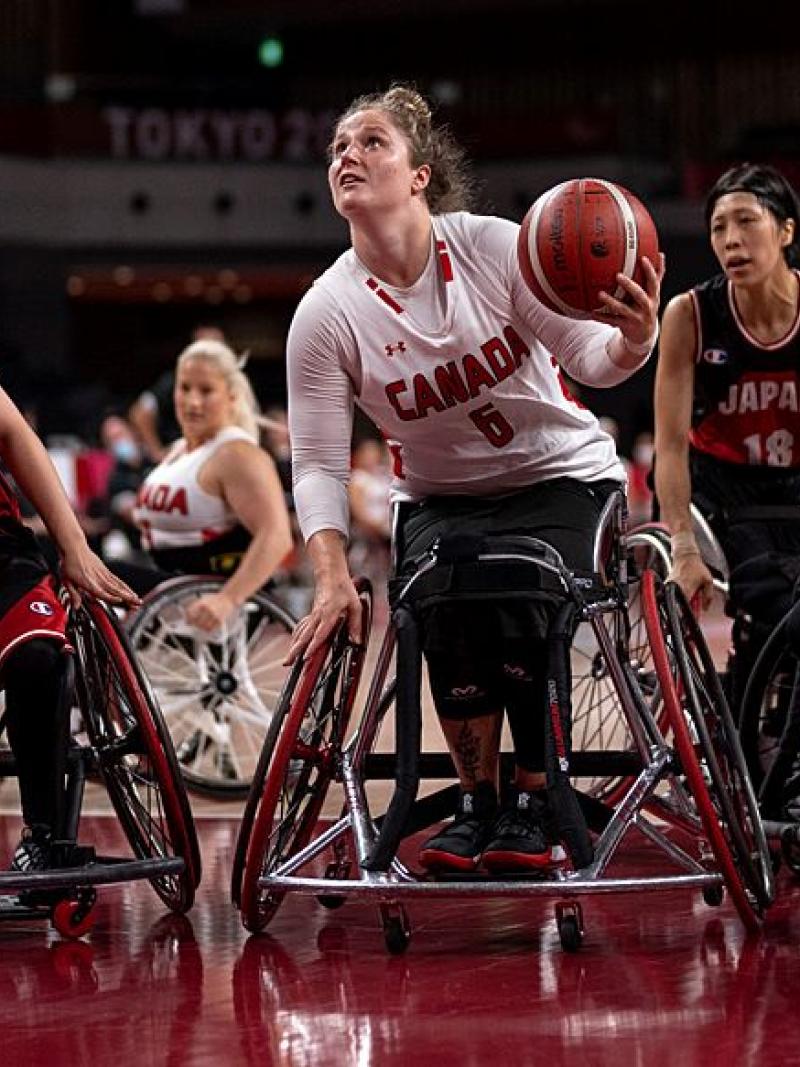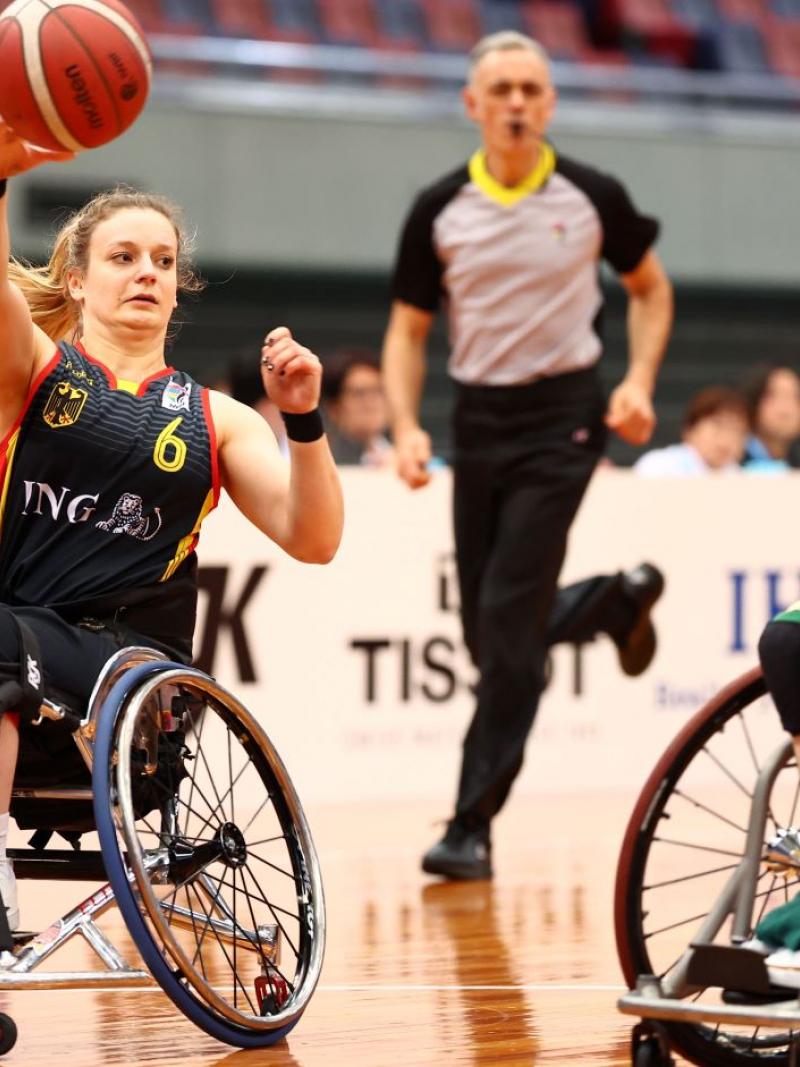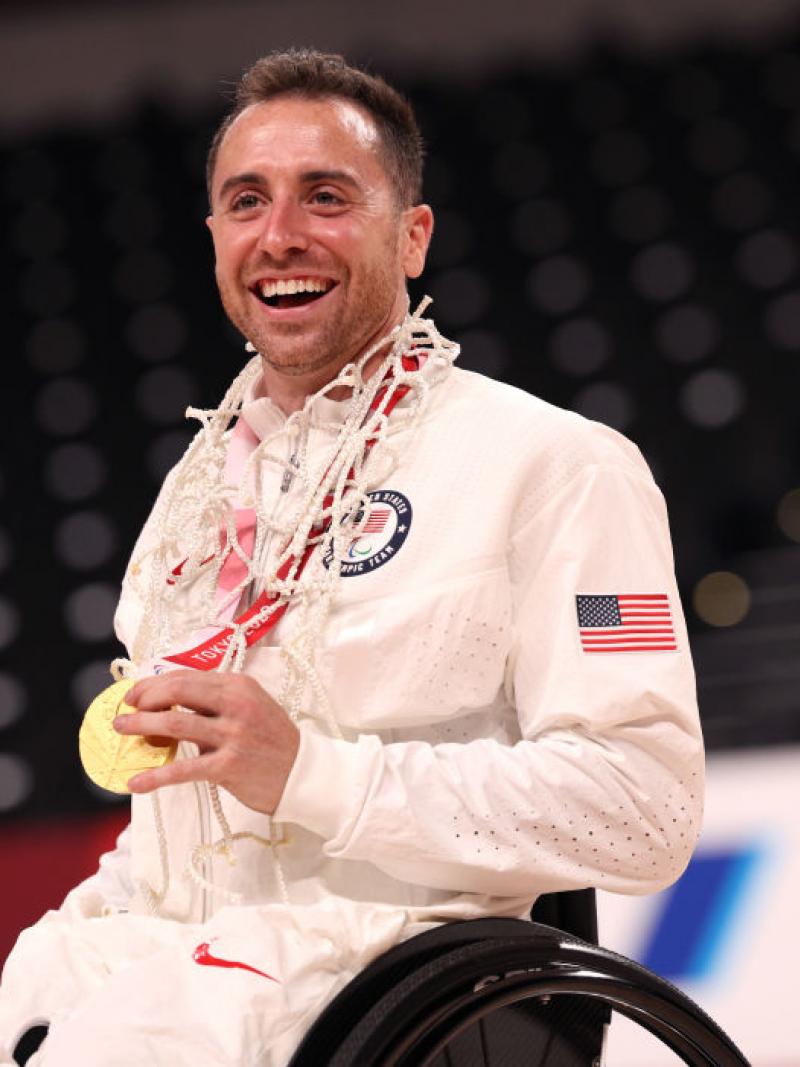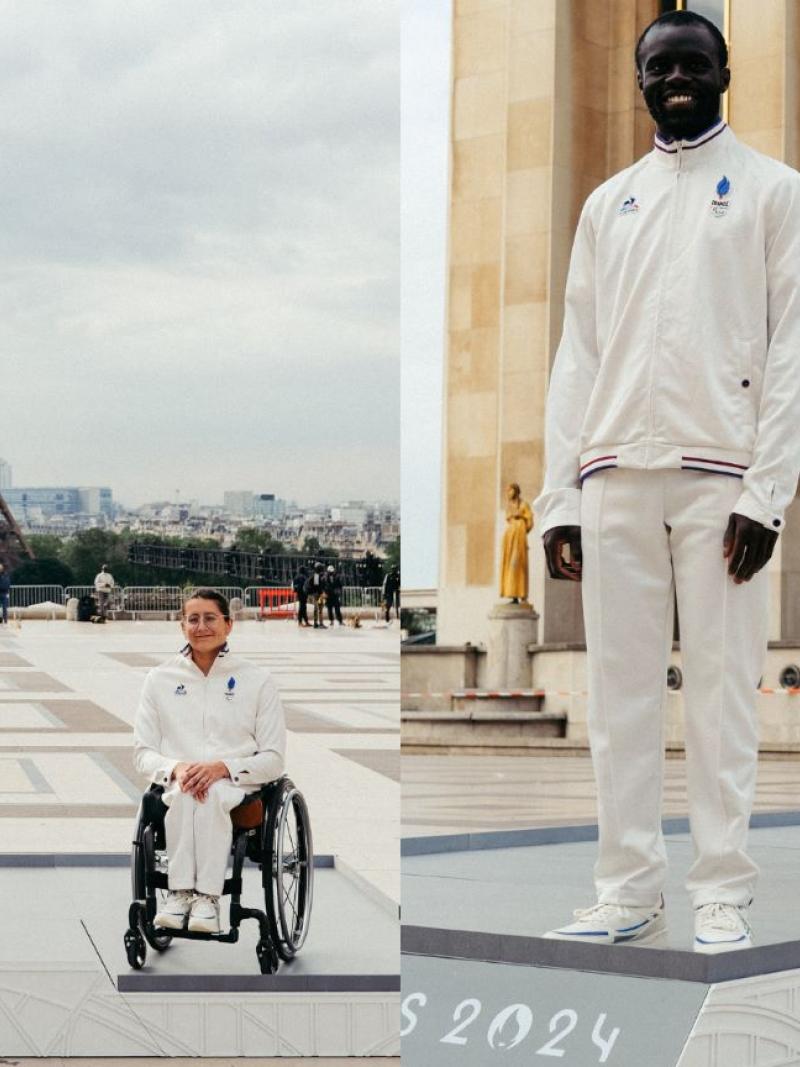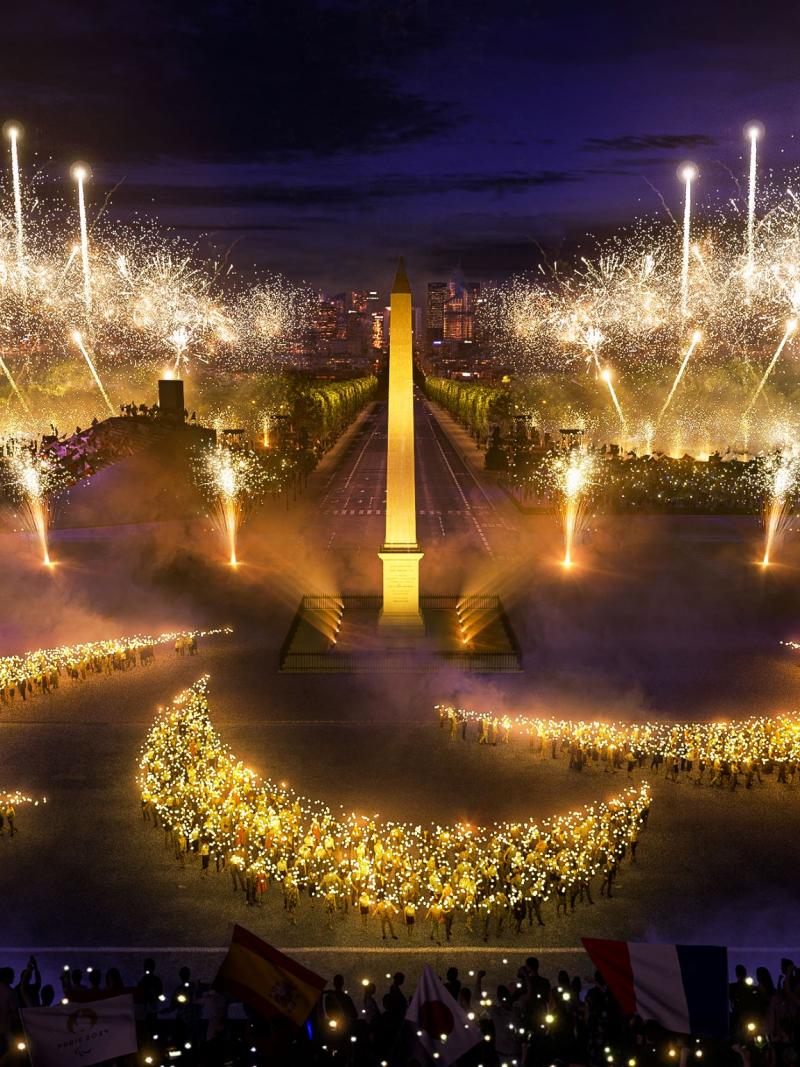Paris 2024: Jitske Visser looks forward to fifth Games
Dutch wheelchair basketball player Jitske Visser has won three medals across four Games, and she is hungry for more 04 Jul 2024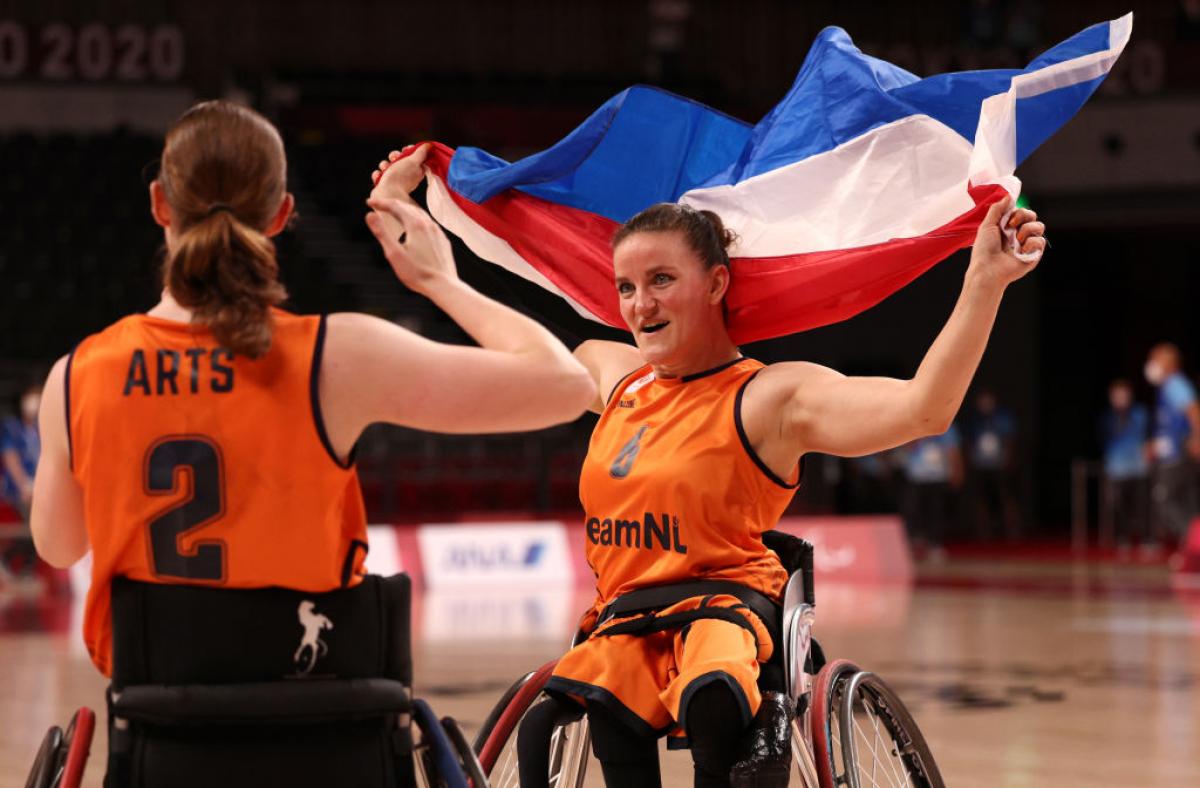
In 16 years, Jitske Visser has gone from a teenage wheelchair basketball talent to one of the most experienced players in the Dutch team. The 31-year-old has also gone from leaving a Paralympic Games empty-handed to celebrating on top of the podium with a gold medal.
And she is still hungry for more.
With less than 60 days to go until Paris 2024, Visser wants to help the Dutch women's team defend their title at the Bercy Arena. Having competed at four Games, her role in the team has changed to become more of a leader.
"First people don't expect so much of you, but now it's not only on the court but off the court, getting the team together and getting everyone on the same page," said Visser, who is also the chairperson of the International Paralympic Committee (IPC) Athletes' Council.
"I appreciated when the older girls took care of me and told me how things were done, so I'm trying to do this for other girls now as well."
Love at first sight
Visser started playing wheelchair basketball at the age of 10 after trying a wide range of sports.
"There was a small club and every week we tried out a new sport. Being the only kid in my school with a disability it was really cool for me to do that with kids who also had a disability," she said.
Visser tried tennis, hockey and many other sports before she was introduced to wheelchair basketball and it was "love at first sight".
"We could just push around in the wheelchairs and try to score. I already loved the pace and dynamics of the sport, even though I did not understand anything about it," she said.
She was invited to play at a local club but due to lack of other players she soon changed to a team an hour and a half from her home.
"It's a lot of distance in the Netherlands," Visser said. "I have an amazing, supportive family and awesome parents and grandparents who drove countless kilometres to make sure I could participate in sports."
Her teammates were aged between 10 and 13 but playing grown-ups in the lowest league in the Netherlands.
"We would lose everything but it was so much fun to be able to participate and compete with kids your age, where everyone had a disability. That is kind of how it started," Visser said.
In 2005, she was called up to the mixed under 23 national team after the coaches had come to watch her train. In December 2007 she was invited to tryouts for the senior squad.
"They had about 50 ladies from all over the country. They had a new head coach and were just about to start preparing for Beijing 2008.
"I had just turned 15 but made it through all selection rounds to be in the final 12. I was the youngest of the whole Dutch squad, it went really quickly, I was still in high school."
Paralympic debut
Aged 15, she went to make her Paralympic Games debut at Beijing 2008.
"I didn't know what was happening. Everything was so overwhelming, really," said Visser.
"Entering the Paralympic Village and seeing so many athletes from all over the world, playing sports I'd never heard of, and I didn't speak much English at the time – it was a great learning opportunity on many levels. But to be honest, I was really nervous and overwhelmed."
Others had started to notice that too. "I remember my coach at some point telling me 'Jitske, we are going to practise but you're going to sleep' because apparently, I looked exhausted. This was before the Games had even started," she said.
However, Visser remembers how the older players took care of her and made her feel included.
"They kind of had to because I was underage, I couldn't even sign my own documents back then," she said.
To the Paralympic podium
The team had to settle for sixth place in Beijing, but four years later it was different at the London 2012 Paralympics.
In 2010, the Netherlands had opened a national sports centre with a full-time wheelchair basketball programme. Visser had joined it after finishing high school in 2011.
"We would practise four days a week, two times a day. It was a lot; strength, condition and basketball training," she said.
"In the year leading up to London we were very focused. Now we had this programme and we wanted to win a medal, this was our goal. So going into the semifinals we were like 'it's so close, it's so close'. Then unfortunately we lost to Germany."
In the bronze medal match, however, the Netherlands beat the United States and the dream had become reality.
"It was a lot of emotions in two days, but we were so happy because we reached our goal. This was amazing," Visser said. "With this group of girls we were like 'we can do more'. In Rio, the goal was gold, nothing less."
At the Rio 2016 Paralympic Games, however, history repeated itself.
"In the semifinal, again against Germany, we lost again. We played horrible, it looked like we were just five individuals on the court," said Visser, whose team bagged another bronze medal.
"It felt more like a relief than the feeling we'd had four years before. Because the goal had been completely different."
After Rio, many national team players retired and about half the squad of 12 was replaced.
"But we had a lot of fun in the group and ended up winning gold at the European championships in Tenerife (Spain). Then we won gold at the 2018 World Championships, for the first time ever, so it was a huge, huge high," Visser said.
PARALYMPIC GOLD MEDALISTS 🧡🔥🥇 pic.twitter.com/F772LiHuQg
— Jitske Visser (@jitskevisser) September 4, 2021
Tokyo, Paris and LA?
In 2019, the Netherlands defended their title at the International Wheelchair Basketball Federation (IWBF) Women's European Championships in Rotterdam, the Netherlands. The hope for that elusive gold medal grew stronger.
"The (Tokyo 2020) Games getting postponed played a lot on the minds of the team. It was tough. But then in Tokyo we ended up winning gold, and this was insane because it was the last box we hadn't ticked," Visser said.
In 2017 she moved to play for RSB Thuringia Bulls in Germany and stayed there for six years.
"I played for one of the top teams in the world, I was the only woman on the team, so of course you get stronger because you have to. And I think I brought a lot of that experience back to the national team," said Visser, who last year relocated to Italian side Volpi Rosse Menarini.
After the Paris 2024 Paralympic Games she thinks that she could well have a sixth Games in her.
"I've always said that fun is the most important thing. The second thing is the physical status. I had a really big surgery on my elbow a few years ago and was in a car crash last year. I couldn't do anything for about six months, it was really tough," she said.
"I don't want to jinx it but if I still find the same joy, then yes. I'm just very much looking forward to Paris and doing the trick (winning gold) again with the Dutch squad."
Discover more about wheelchair basketball and the 22 sports in the Paris 2024 Paralympic sports programme





